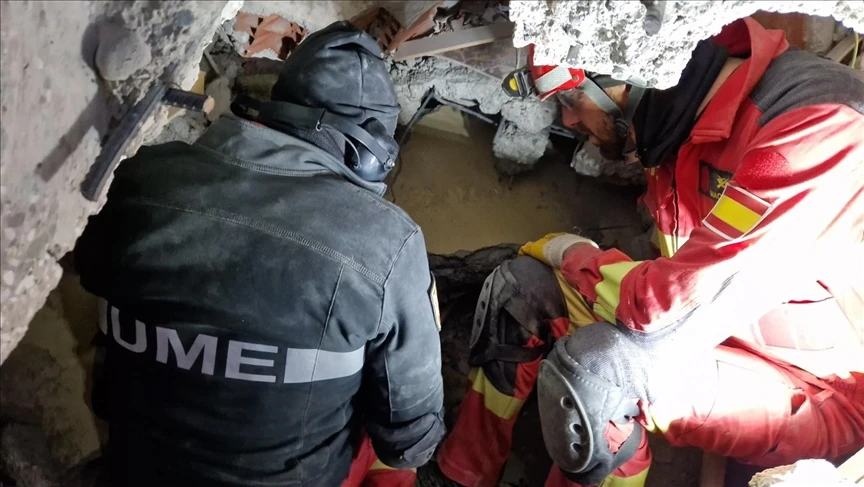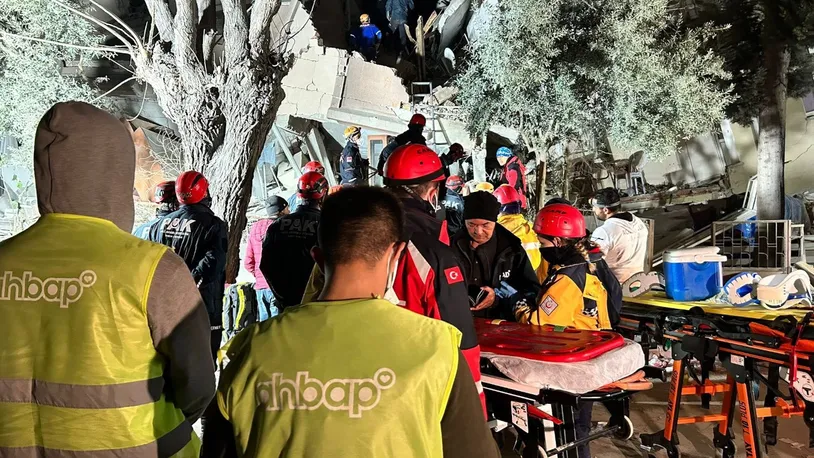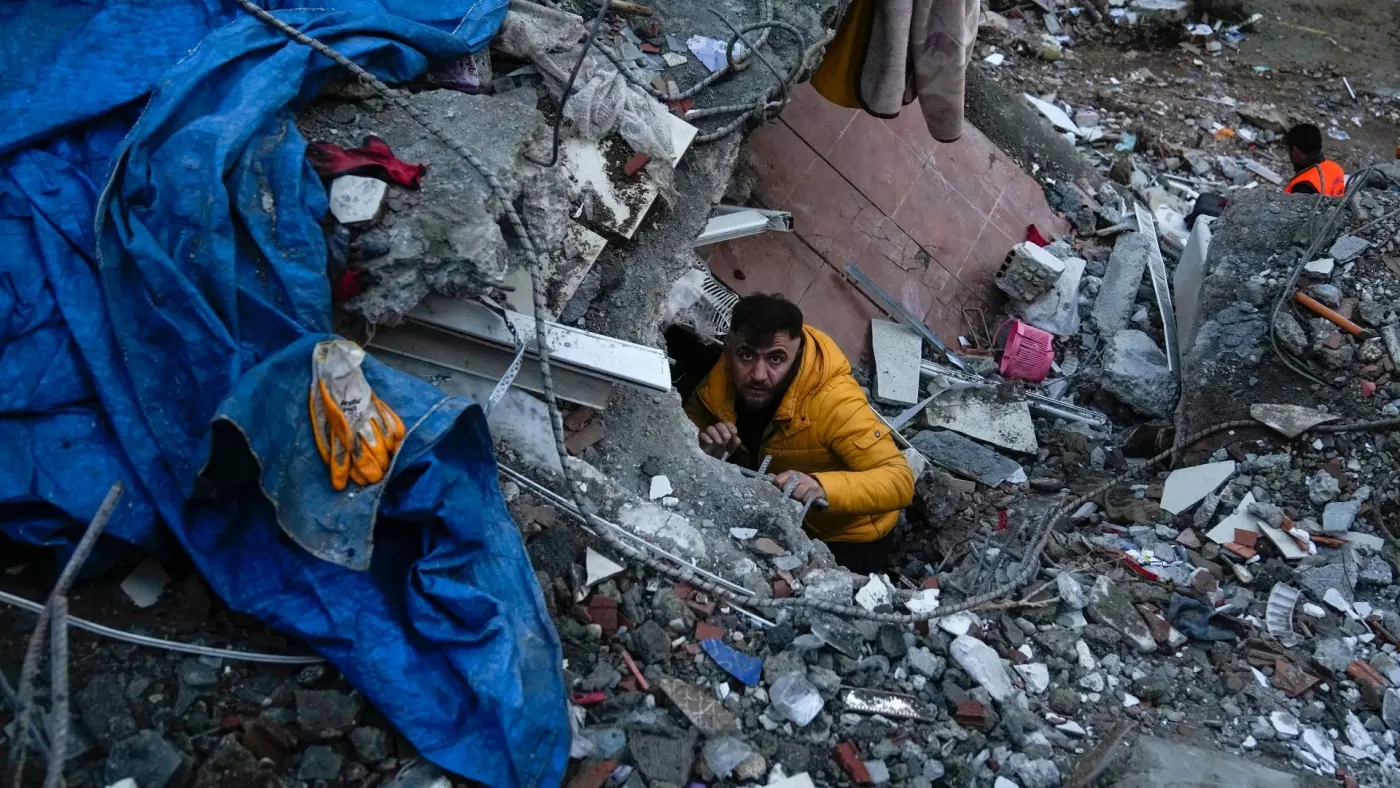Turkish citizens show rising confidence in civil society after earthquake relief efforts
 Image of the Spanish rescue team, UME, rescuing a mother with 2 children in earthquake-hit Gaziantep, Türkiye, February 10, 2023. (AA Photo)
Image of the Spanish rescue team, UME, rescuing a mother with 2 children in earthquake-hit Gaziantep, Türkiye, February 10, 2023. (AA Photo)
Public opinion on civil society organizations in Türkiye has become more favorable, especially following the Feb. 6 earthquakes, according to a recent report by the Civil Society Development Center (STGM).
Rising confidence in civil society after disaster response
The “Perception of Civil Society in Türkiye Report,” published on Nov. 8, surveyed 3,040 people across 42 provinces between December 2023 and January 2024. While general awareness of civil society remains limited, the report highlighted a significant boost in public perception because of civil society organizations’ involvement in earthquake relief efforts.
Around 50% of respondents reported a more positive view of these organizations, with many believing they outperformed state agencies in disaster response.
Respondents largely associated civil society with values like “volunteering,” “solidarity,” and “aid.” Fewer people connected it to “advocacy” or “activism.” Despite some criticism, negative terms like “foreign influence” were scarcely mentioned.
Priority for poverty, health and education over rights advocacy
Survey participants expressed the need for more organizations addressing poverty, education, and health. However, fewer respondents identified fundamental rights and freedoms as priorities.
While public support remains high for social causes, only 20% believe civil society can influence policy or resolve broader societal issues. This low confidence stems from a lack of civil society engagement with municipalities, ministries, and Parliament, the report suggests.
Trust in civil society higher among younger generations
The report found Türkiye’s military remains the most trusted institution, while religious communities rank the lowest. Civil society organizations rank just below government agencies and public institutions. The data revealed that participants under 35 are generally less trusting of religious leaders, political parties, and religious groups, while showing more faith in social media platforms.
Young people’s engagement with civil society organizations is limited, with many hesitant to join because of membership reporting requirements. This trend suggests that easing restrictions on association could encourage more youth participation in civil society.


Earthquake efforts boost visibility of key organizations
The report noted that civil society groups gain significant visibility in times of crisis, as demonstrated by the recent earthquakes. The Turkish Red Crescent (Kizilay) and AHBAP were among the most recognized organizations.
Other well-known groups included LOSEV, TEMA and Darussafaka, all of which have a strong media presence.
Limited public involvement despite positive sentiment
While trust in civil society rises with familiarity, about 80 percent of respondents reported no personal interaction with these organizations. Public perception of civil society suffers because of limited engagement and the challenges organizations face with freedom of association laws.
The report highlighted that most interactions with civil society are limited to aid, scholarships, and accommodation services, while active membership remains low.
The report’s findings underscore a growing public trust in civil society organizations, especially among those familiar with their work. Increased engagement, notably in times of crisis, has strengthened the positive perception of civil society.
However, regulatory obstacles and low public involvement indicate that expanding freedom of association could be key to fostering a more active civil society in Türkiye.



